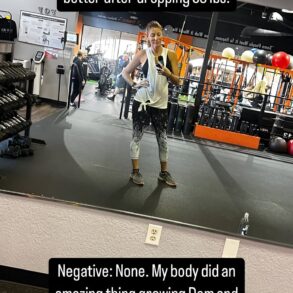Like Traccye Love, Preyar emulated a certain R&B singer.
“I wanted it bone straight, like Aaliyah, with it hanging down in my face,” Preyar said.
Two days before Thanksgiving last year, she signed on to be the face of the lawsuit in Chicago.
“I personally think this will be the largest lawsuit of its kind with Black female victims.”
Preyar, who went natural in 1999, spent more than a year taking speaking engagements and TV interviews — on CNN and at the Black Women’s Expo in Chicago last August. Law firms have taken out ads on bus stops and billboards in predominantly Black neighborhoods across the United States.
The scientific evidence
The science linking at-home hair relaxers, which have likely changed formulas numerous times since the most popular products were developed in the 1960s, is not airtight. A direct correlation between relaxer use, much less a specific product, has not yet been documented — which is not necessarily unusual even in successful lawsuits, said Noah Smith-Drelich, a professor at IIT-Kent College of Law who has studied mass torts like the relaxer case.
“That kind of correlation, where you can say, ‘This chemical or this product caused this specific illness for this person,’ is just not something that science is going to be able to produce,” Smith-Drelich said.
“What science does better is probabilistic (to) say more broadly that this group of people have this level of exposure and have this increase in developing this injury,” Smith-Drelich said.
Phthalates, a possible carcinogen known to interfere with the endocrine system and likely an element of the fragrances used in relaxer products, have been banned in most consumer products in Europe as well as in some U.S. states, including California.
FDA regulations for cosmetics and beauty products don’t require a detailed listing of ingredients on the label, and phthalates are commonly used to make perfumes last longer and often are identified on packaging only as “fragrance.” But there have been recent moves that show federal agencies are looking at the formulas for hair relaxers. In January, the Food and Drug Administration announced it was considering a ban on formaldehyde — which is commonly used in dyes and relaxers — in hair products.
Moves to regulate, or at least require warnings about potentially hazardous chemicals in hair relaxers, are overdue, said Traci Bethea, a Georgetown University researcher who co-authored a commentary on the 2022 NIH study that found an association between relaxer use and higher rates of uterine cancer. While definitive links between the chemicals and a variety of endocrine conditions and related cancers have yet to be made, a growing body of research has provided worrisome data.
“Yes, chemicals are complicated in how they interact with the human body and with each other, and there are more studies necessary,” Bethea said. She and her co-authors “felt like there’s enough information from (laboratory) models, as well as the human patterns of behavior and health outcomes.
“We really should be doing more to educate folks, to hold industry accountable for what they know and what they are producing, and to have other broader interventions in terms of regulation and better-designed studies,” she said.
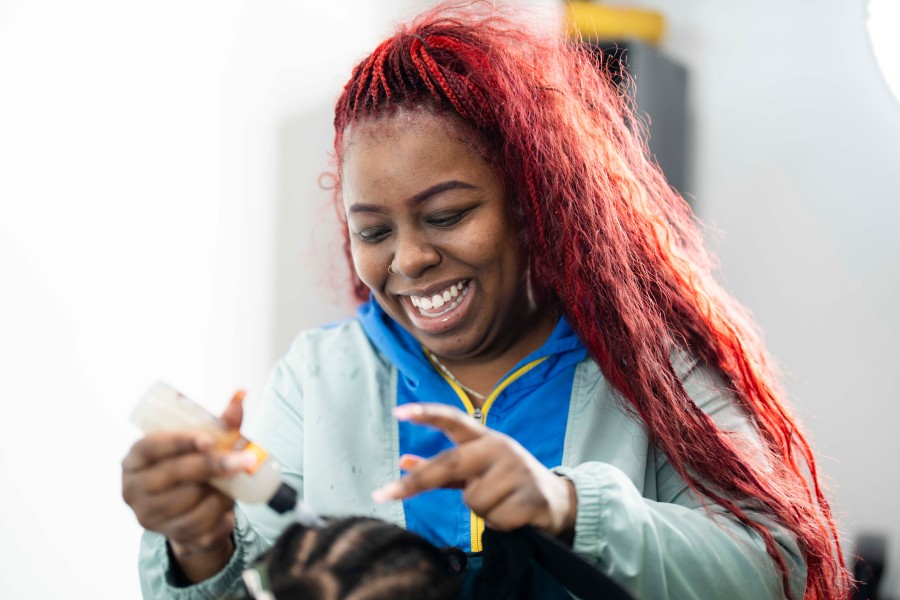
The move away from relaxers among Black women
Jasmine Valentine, whose hair styling business is called Crowned by Jai, got her first perm at age 5 or 6 and kept getting the white cream applied until age 18. That’s when she finally stopped.
“I didn’t like how they made my hair feel. I didn’t like the side effects that they have, which is perm burns,” Valentine, 32, said.
Today, only two of her clients — out of 100 — still ask for relaxers. Valentine said well before the lawsuit there has been a trend away from relaxers because there are hotter curling irons to get hair straighter and more Black haircare products that prevent frizziness.
Valentine doesn’t think the lawsuits are making an impact yet. She has a lot of stylist friends, but she said none of them know, or are talking, about the suits.
“I hope that in this lawsuit, they find out what’s the root of the problem because it’s just sad,” Valentine said. “I hope that they’re able to be compensated for anything that the relaxer has caused.”
She said Black women historically relaxed their hair because “we were taught to hate ourselves. We were taught to hate our skin. We were taught to hate anything that was ethnic and natural about us. So they put people on TV that were lighter, that had straighter hair. Or that looked a certain way and, you know, everybody wants to live up to those standards.”
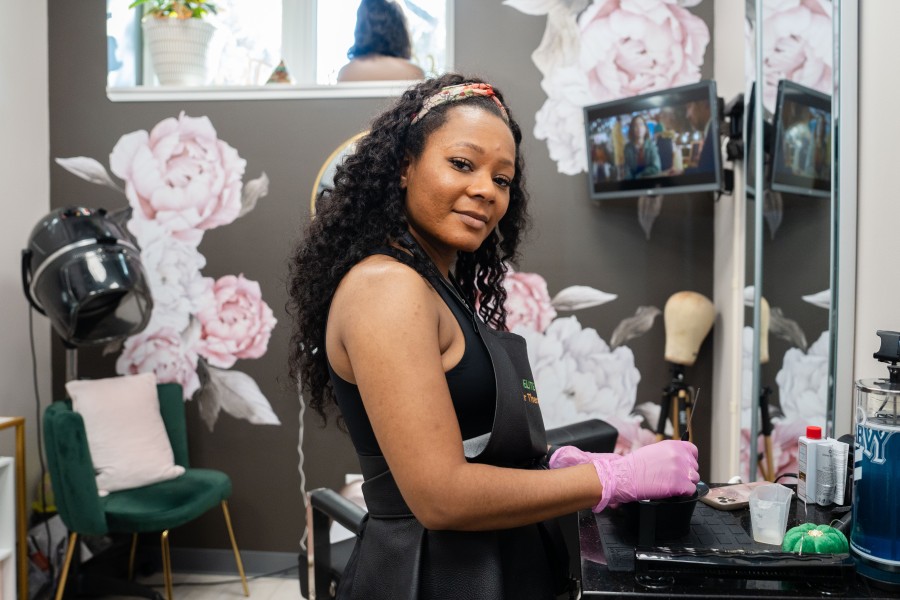
Stylist LaQuana Johnson said only about six of her 40 regular clients at Elite Hair Therapy in Chicago’s Bronzeville neighborhood come to her for relaxers. Ebony Grisby-Terry, a high school teacher, is one of them.
Johnson checks, sections and meticulously bases Grisby-Terry’s scalp with a grease before applying the relaxer. The process takes about 30 minutes. When it’s time to apply the relaxer, Johnson is careful not to brush chemicals on the scalp but only on the wavy new growth.
Grisby-Terry, 45, has been getting relaxers since grade school and has no plans to stop.
“I don’t like the natural hair on me. I don’t care for the shrinkage. I like the length that the relaxer gives. And I just don’t like doing my own hair at all. There’s a lot of maintenance involved with the natural hair,” Grisby-Terry said.
Johnson is aware of the studies and the lawsuit, but they haven’t deterred her from giving relaxers. Johnson points out the products she uses in the salon require a professional license and typically cost more than three times as much as home kits.
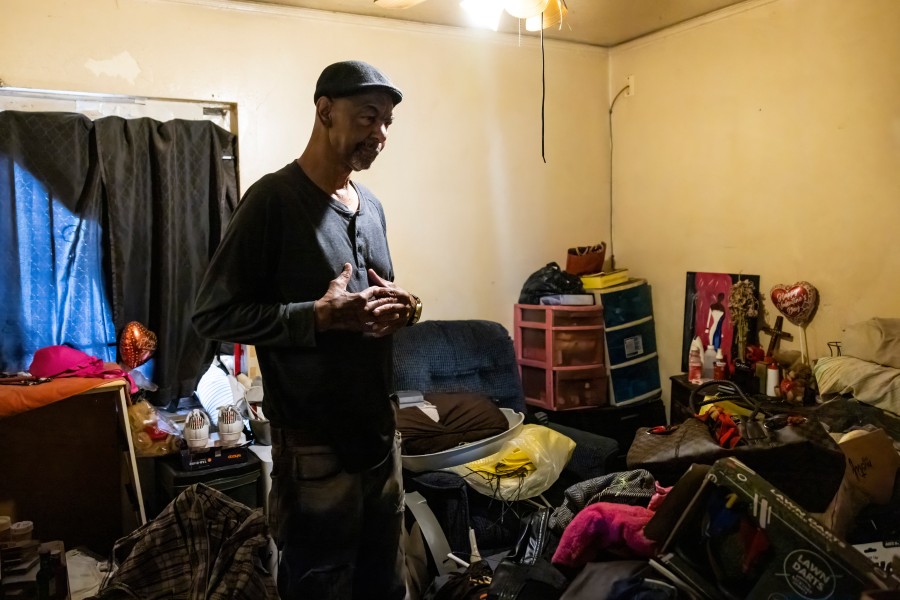
A long road ahead
There may well be another decade of research available before the first cases go to trial in the federal cases, and about as long for those filed in state courts. It’s already been nearly two years since the first federal lawsuit was filed and lawyers are still negotiating over what company records need to be turned over and how.
Meanwhile, women and their family members wait.
Sheree Sanders filed a federal lawsuit in February 2023, claiming that her decades of relaxer use led to her uterine cancer. Her husband, Arther Sanders, only learned about the case this January, when a letter from a law firm arrived at their house the day before her funeral.
Sheree started wearing her hair straight well before she and Arther became a couple in the mid-1990s, and Arther spotted a box of Dark & Lovely relaxer in her medicine cabinet soon after they moved in together. “I used to tell her, ‘You know I love you because you’re dark and you’re lovely,’ ’’ Arther Sanders said in an interview from his home in Detroit.
Sanders still finds hair care products in the bedroom where Sheree spent most of her days after she was diagnosed with uterine cancer in 2019. She had a hysterectomy, followed by more surgeries to remove tumors, as well as chemotherapy and radiation treatments. She died in January at age 58.
The surgeries left her unable to continue working as a home health care aide, and complications from the operations sapped her vivacious personality.
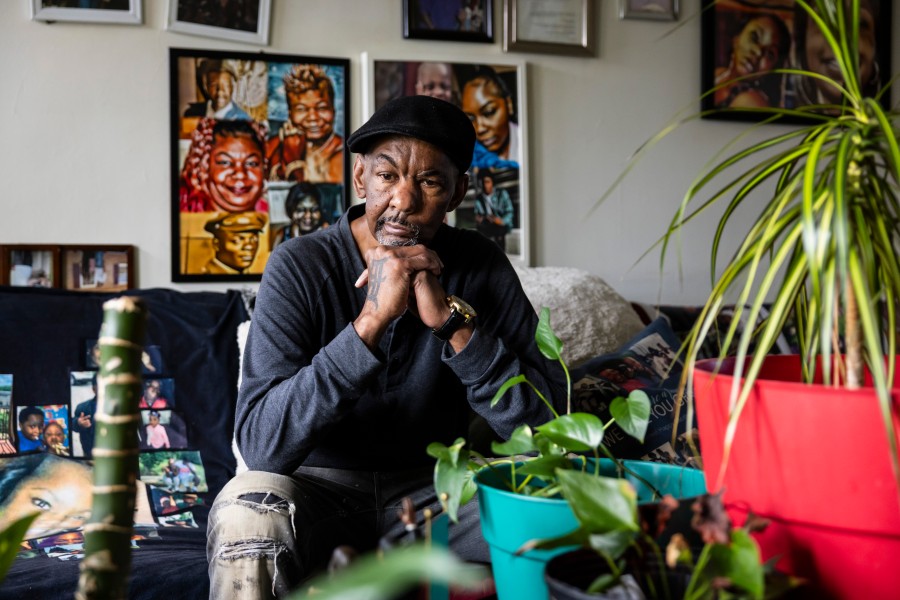
“I would always hear her crying, and she would say, ‘My life will never be the same,’ ” Sanders said.
“She didn’t associate any of those [hair products] with cancer. If she had known that or thought that, she wouldn’t have used them.”
Andy Grimm covers the courts and criminal justice for the Sun-Times. Natalie Y. Moore is the Race, Class and Communities editor at WBEZ.
This post was originally published on this site be sure to check out more of their content.






